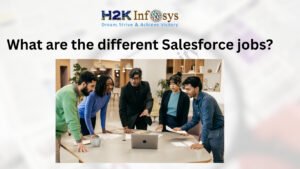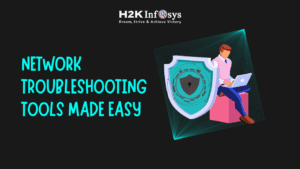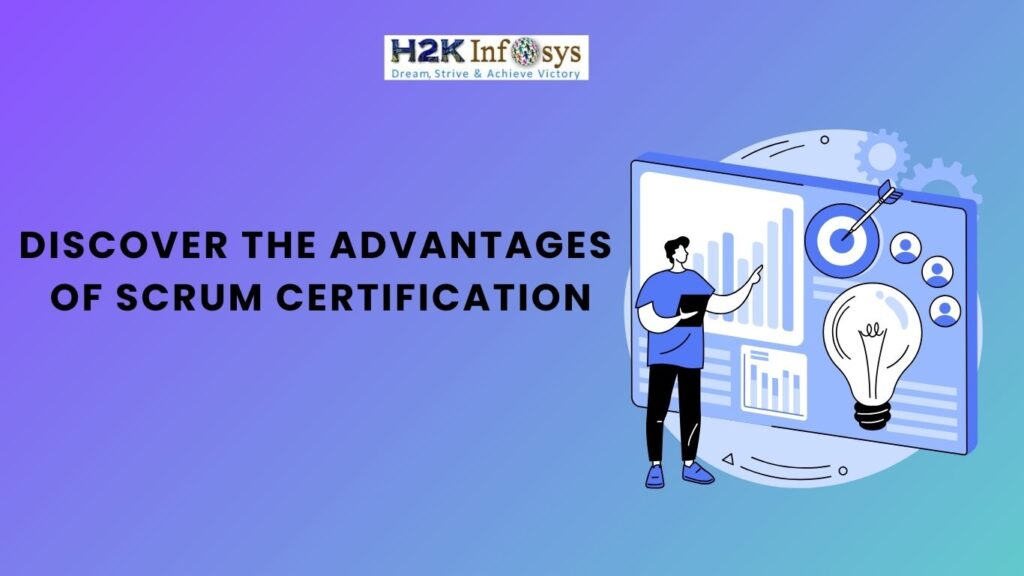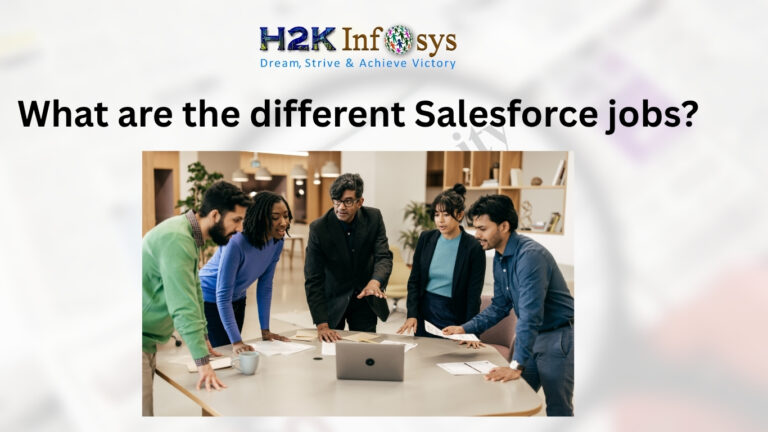Introduction: The 2025 Salesforce Job Boom
Are you aiming to land a lucrative Salesforce Job in 2025? You’re not alone. As more companies adopt cloud-based Customer Relationship Management (CRM) systems, the demand for Salesforce professionals is skyrocketing. In fact, IDC predicts over 9 million new jobs will be created in the Salesforce ecosystem by 2026.
This blog provides a complete roadmap to help you land a Salesforce job in 2025. Whether you’re a fresher, career switcher, or upskilling IT professional, you’ll gain insights into the required skills, Salesforce admin certification, training paths, and industry demands.
Why Choose a Salesforce Career in 2025?
Salesforce has transformed how businesses operate. From sales to service and marketing, companies rely heavily on this platform for automation, analytics, and customer engagement. As digital transformation continues, Salesforce Jobs are becoming one of the most secure and high-paying roles in tech.
Benefits of a Salesforce Job:
- High salary packages (avg. $90,000–$130,000/year in the U.S.)
- Global career opportunities
- Remote and flexible job roles
- Continuous innovation and learning
Additionally, Salesforce supports a vast partner and developer ecosystem, ensuring that certified professionals will always find work in various sectors, including healthcare, finance, government, and education.
Step 1: Understand the Salesforce Ecosystem
Before diving in, get familiar with the key components of the Salesforce ecosystem:
- Sales Cloud – Focuses on sales automation
- Service Cloud – Helps with customer service management
- Marketing Cloud – Drives marketing automation
- Commerce Cloud, Analytics Cloud, and more
Salesforce professionals may work in various roles, such as:
- Salesforce Administrator
- Salesforce Developer
- Salesforce Consultant
- Salesforce Business Analyst
- Salesforce Architect
Each role requires a unique set of skills and qualifications. It’s important to understand your strengths and align them with the most suitable Salesforce role.
Step 2: Enroll in a Salesforce Online Training Program
The most practical way to start your journey is by enrolling in a structured salesforce online training program. These courses provide foundational and advanced knowledge needed for real-world implementation.
What to Expect from Salesforce Online Training:
- Guided modules covering Salesforce basics
- Hands-on exercises and case studies
- Live projects simulating workplace environments
- Access to expert trainers and mentors
- Community support and networking opportunities
H2KInfosys offers comprehensive Salesforce training online designed for beginners and professionals alike. Their course content is frequently updated to reflect the latest platform changes.
Step 3: Choose the Right Salesforce Certification Courses
Salesforce offers multiple certification paths. The right salesforce certification courses can make your resume stand out and validate your skills.
Popular Salesforce Certifications in 2025:
- Salesforce Certified Administrator
- Salesforce Certified Platform Developer I & II
- Salesforce Certified Advanced Administrator
- Salesforce Certified Sales Cloud Consultant
- Salesforce Certified Service Cloud Consultant
Why Salesforce Certification Matters:
- Increases job prospects
- Enhances credibility with employers
- Helps in career advancement and higher pay
- Validates hands-on and theoretical knowledge
If you’re unsure about which certification to pursue, consulting mentors from your salesforce certification training provider can guide your path.
Step 4: Join Salesforce Training Classes with Hands-On Practice
Theory alone won’t get you hired. Employers want to see real-world application of skills. That’s where salesforce training classes come in.
What Hands-On Training Offers:
- Simulated CRM platforms
- Workflow and automation tasks
- Report and dashboard creation
- Data migration and app building
- Case study-based learning projects
These classes not only build your technical skillset but also boost your confidence in handling day-to-day tasks expected in a Salesforce Job.
Step 5: Focus on Salesforce Admin Course First
If you’re new to the Salesforce world, the salesforce admin course is the ideal starting point. It lays the foundation for understanding how Salesforce works from an end-user and administrative perspective.
Topics Covered in Admin Course:
- User management and security settings
- Object customization and layout configuration
- Workflow rules and approval processes
- Reporting and dashboards
- Data access and sharing rules
Completing this course is often a prerequisite before diving into developer or consultant roles.
Step 6: Gain Practical Experience Through Simulated Projects
Practical experience is often the deal-maker in interviews. Enroll in a course offering salesforce admin training and placement, which includes hands-on labs and simulated environments.
How Practical Projects Help You Land a Salesforce Job:
- Replicate real-life business scenarios
- Learn to troubleshoot and debug workflows
- Develop custom apps using Lightning App Builder
- Understand end-user needs and provide scalable solutions
Additionally, capstone projects and client simulations prepare you for real work environments and help build a strong portfolio.
Step 7: Optimize Your Resume and LinkedIn Profile
Once trained and certified, your next move is to make your resume recruiter-ready.
Salesforce Job Resume Tips:
- Highlight Salesforce certifications in the top section
- Add relevant keywords like “Salesforce Administrator,” “Salesforce Developer,” and “Lightning Platform”
- List your practical projects and outcomes
- Include soft skills like communication, problem-solving, and attention to detail
Update your LinkedIn profile to reflect the same information and join Salesforce-related groups. A well-optimized LinkedIn profile can often attract recruiters directly.
Step 8: Start Applying Strategically
Now you’re ready to land that Salesforce Job! Use job portals like LinkedIn, Glassdoor, and Indeed. Also, register with staffing agencies that specialize in tech placements.
Pro Tips for Job Search:
- Apply to at least 5-10 jobs daily
- Customize your cover letter for each application
- Prepare a 30-second personal pitch for interviews
- Highlight your hands-on experience during interviews
Don’t hesitate to apply for internships or contract roles they often lead to full-time Salesforce job opportunities.
Step 9: Practice Salesforce Job Interview Questions
Salesforce interviews in 2025 are skill-based. Expect questions on:
- Custom objects vs. standard objects
- Automation tools: Workflow vs. Process Builder vs. Flow
- Security and sharing settings
- Data migration methods
- Apex and Visualforce (for developers)
Join mock interview sessions through your salesforce training classes or with mentors from your salesforce certification training provider. Practice role-based scenarios and be prepared to demonstrate use cases live.
Step 10: Enroll in Salesforce Admin Training and Placement Programs
One of the best ways to ensure employment is to join a salesforce admin training and placement program. These programs are designed to:
- Provide job-focused training
- Include career coaching and resume building
- Offer mock interviews
- Support job placement assistance with partner firms
H2KInfosys specializes in such placement-backed Salesforce training certification programs, ensuring you’re interview-ready.
Real-World Success Story
Case Study: Rita, a former business analyst with no prior Salesforce experience, enrolled in a salesforce online training course at H2KInfosys. Within 6 months, she earned her Salesforce Administrator certification and completed two capstone projects. After joining their salesforce admin training and placement track, she landed her first Salesforce Job at a fintech startup as a junior admin.
Her salary jumped from $50,000 to $88,000, proving the power of targeted Salesforce course planning.
Tools Every Salesforce Job Candidate Should Learn
To increase employability, learn key tools within and outside of Salesforce:
- Salesforce Lightning
- Flow Builder
- Data Loader
- SOQL (Salesforce Object Query Language)
- GitHub (for version control)
- JIRA (for project tracking)
These tools are often integrated into real projects and help you stay competitive.
Top Companies Hiring for Salesforce Jobs in 2025
Some of the top employers actively hiring Salesforce professionals include:
- Deloitte
- Accenture
- IBM
- Cognizant
- Infosys
- Salesforce (the company itself!)
- Capgemini
- PwC
These organizations offer excellent career growth opportunities and expect job candidates to be well-versed with salesforce training online and real-world use cases.
Continuing Education and Community Involvement
Landing your first Salesforce Job is just the beginning. Staying current is key.
Ongoing Learning Tips:
- Attend Dreamforce and local Salesforce events
- Follow Salesforce Trailhead for free modules
- Join community groups and forums
- Contribute to open-source Salesforce projects
Being active in the ecosystem can lead to new job referrals and mentorship opportunities.
Conclusion: Your Salesforce Career Starts Now
The path to a Salesforce Job in 2025 is clear: get trained, get certified, get hands-on, and get hired. By enrolling in structured salesforce training courses like those offered by H2KInfosys, you’re taking a major step toward a future-proof career.
Key Takeaways:
- Start with a Salesforce Admin Course
- Enroll in practical, hands-on Salesforce Training Classes
- Earn your Salesforce Training Certification
- Join placement support programs
- Apply confidently and prepare thoroughly
- Stay updated and connected with the Salesforce community
Your career as a Salesforce professional is just one step away. Enroll now with H2KInfosys for real-world skills and job placement support!tant to note that the work lies in the implementation for the steps outlined here. So if you want to land that job, start putting this knowledge to work.




























